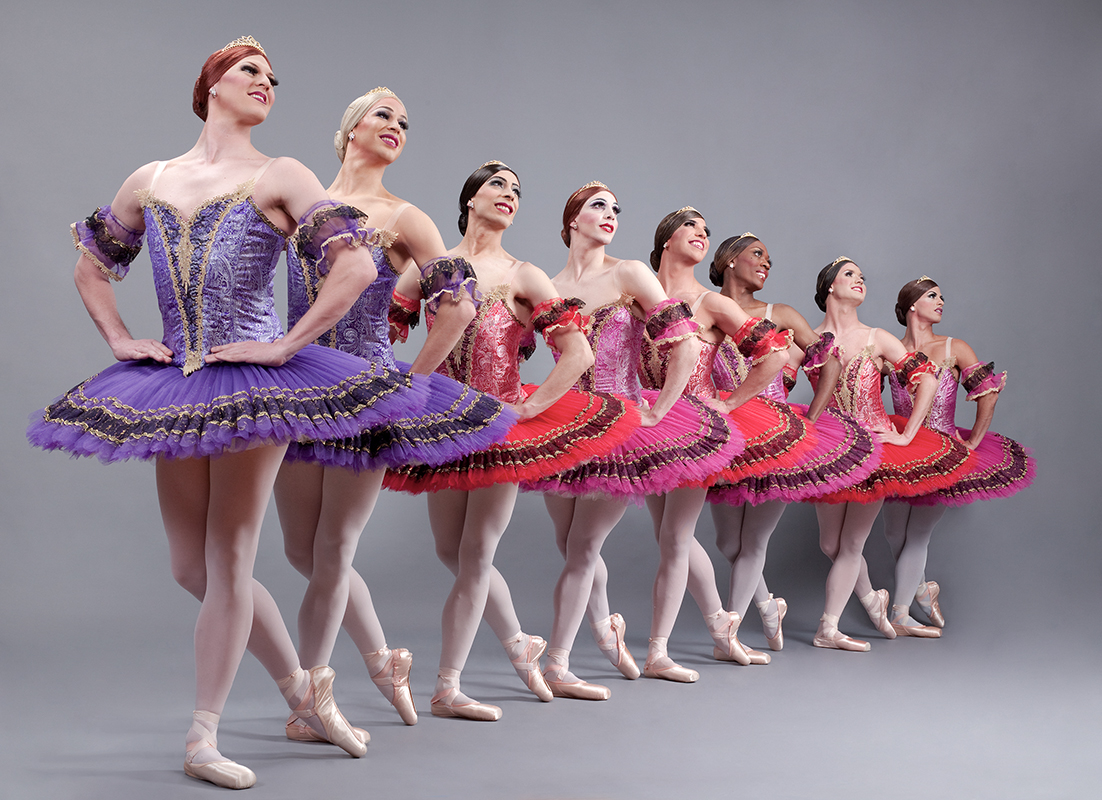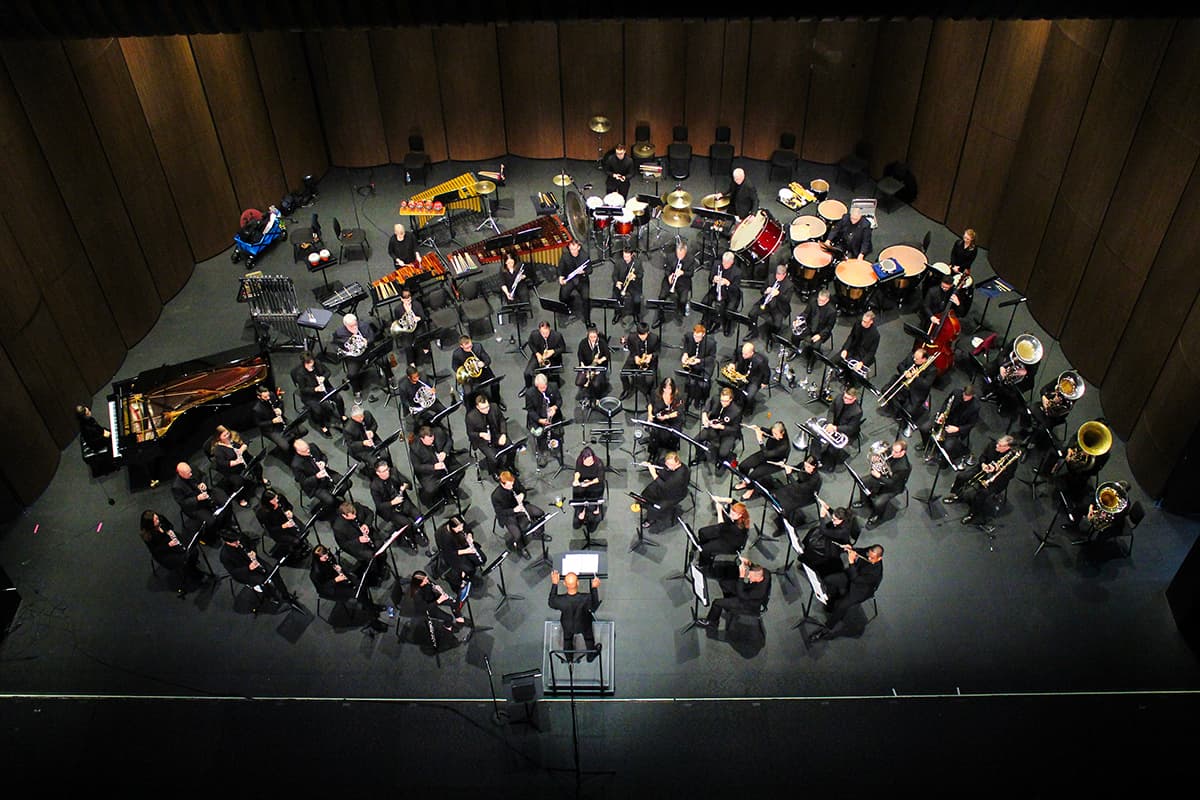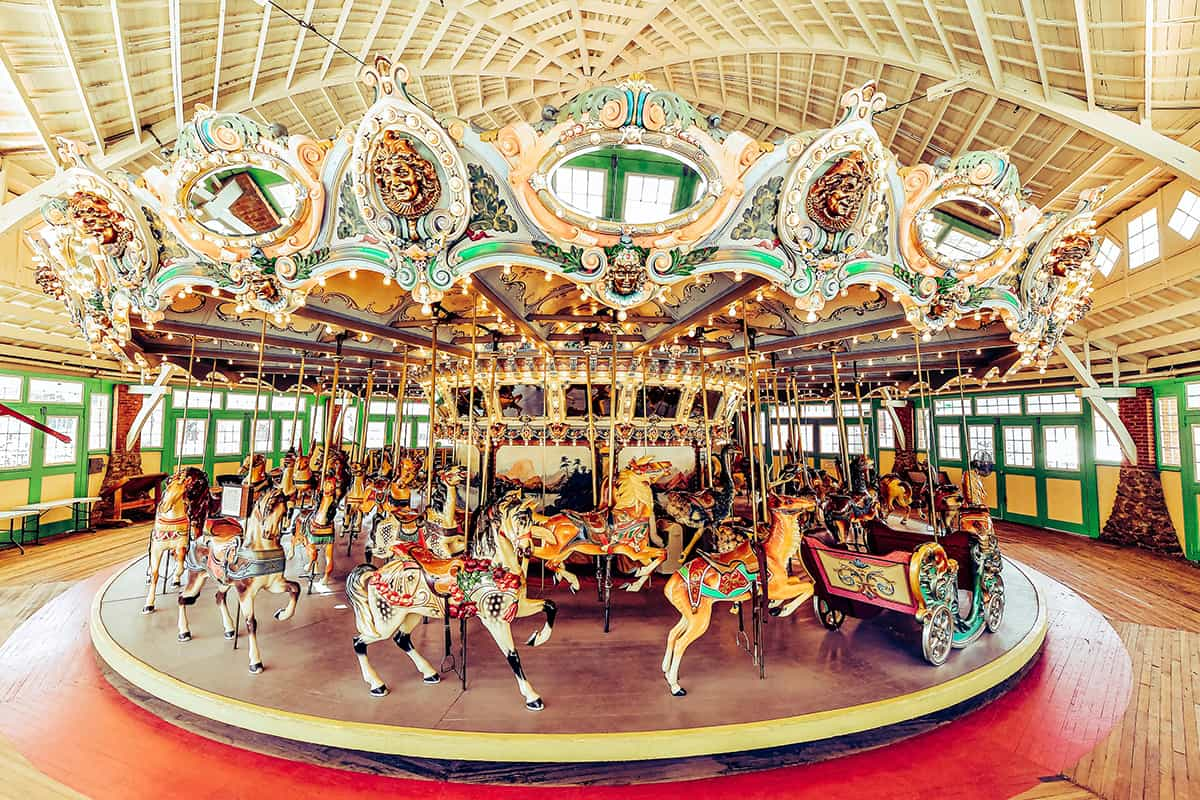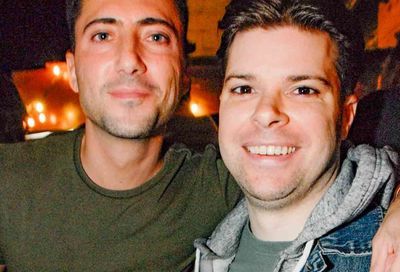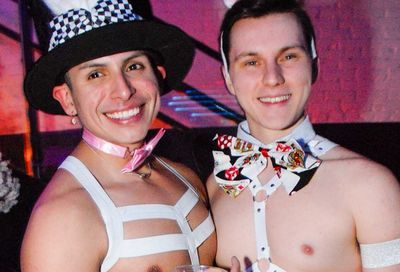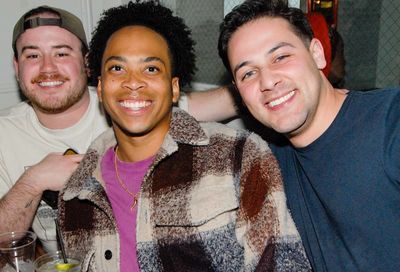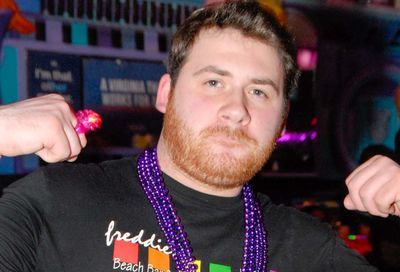Jake Wesley Rogers Is Pop’s Latest Queer Gem
Jake Wesley Rogers pushes forward proudly, bringing his unique sound to this year's Out & About Festival and beyond.

Jake Wesley Rogers pops up on our video call sporting a shock of spiky, bleached-blond hair, which immediately becomes the first subject of conversation. “It’s somewhat untamed these days, but I keep bleaching it to be lighter and I’m in love with it,” says Rogers, joking about “the Warhol of it all.”
Seconds later, the rising singer-songwriter clarifies that his hair journey is more inspired by the look of a different gay artist, David Hockney, and we’re off and running on a fabulous odyssey discussing queer art and culture from Oscar Wilde and Freddie Mercury to Brandi Carlile.
Grammy-winner Carlile will be headlining this year’s Out & About Festival, a two-day, three-stage festival of music, nature, and LGBTQ Pride at Wolf Trap, where Rogers, currently promoting his second major-label EP, LOVE, will grace the event’s Meadow Stage on Saturday afternoon.
Rogers joins a lineup of queer artists and allies that also includes the band Lucius, Brandy Clark, Yola, Celisse, local faves Oh He Dead, and one of Rogers’ early artistic heroes, Rufus Wainwright.
“Rufus is someone I found in college,” Rogers recalls. “That kind of blew my whole world up as far as this incredibly prolific singer-songwriter, writing these songs as an openly gay person in the late ’90s, early 2000s. That is so important and so inspiring to me.”
Rogers, who learned piano while still a kid in Ozark, Missouri, had taken to writing his own songs as a necessary means of self-expression and preservation. “I started to write songs at about the age of 12, which is when I was sort of forced out of the closet, and was feeling very dark and scared,” he says.
“It’s that energy that led me to the piano, and I don’t think that’s a coincidence. I think I went to it as a form of catharsis and finding a way to find autonomy within my story, and make something that was whole outside of something where I felt relatively broken. And it’s still that, when I sit down I just want to make something that feels like medicine to me, that is it. And my medicine is not anybody else’s medicine.”
But his hope is that his audience can find themselves in his medicine, the same way he found catharsis through his heroes’ music. “When I listen to a record like ‘By the Way, I Forgive You’ by Brandi Carlile, I could tell she wrote that because she needed it,” he says.
“She needed to vindicate her younger self who was traumatized in a religious setting. And when I heard that, it liberated me. Her liberation liberated me. And that’s kind of why I keep going because I just know, right now especially, the world needs people telling the truth and telling their truth and telling their story. It really is healing.”

METRO WEEKLY: I wanted to tell you that I was actually first introduced to you not through music but through seeing you as a guest judge on Legendary season three. What was it like shooting the show?
JAKE WESLEY ROGERS: It was an amazing experience. I was very nervous for it, just because I love the show very much. I have always been in awe of ballroom culture, and it’s something that I’m not a part of, so I think I was kind of stepping in as an outsider and I just wanted to respect the medium. I did have a bit of imposter syndrome to be honest. However, in the end it was such a beautiful experience, all of that sort of faded away, and it reminded me why the art form is so important and how much I owe my performing to people that invented that. I had a good time.
MW: It’s true, they have fed a lot of culture.
ROGERS: A lot of culture. We owe so much. So yeah, it was beautiful and I miss the show. I’m sad it’s gone.
MW: I miss it, too. Something that’s interesting, because I wanted to rewatch the episode that you did, is that you can’t stream Legendary right now. It’s among the different content that Max/HBO, they’ve sort of been dumping off. And unless you–
ROGERS: They took it off?
MW: It’s off. So unless you can physically own some things, you’re not going to be able to get them anymore. Which, as a musician, how do you navigate this industry that is ever more digital? We don’t own physical copies of anything anymore. Corporations control content like that.
ROGERS: All I can say is, and you can quote me on this, the truth cannot be buried. People have been trying to bury the truth for a very long time. And by that I mean, something like queer art and queer existence has been something that has been in the backrooms for so long. That’s not really answering your question. But I do feel like, yes, it’s worrisome when corporations have control over what people can see.
However, I’m not worried because I just see this world now where because of things like TikTok and because of things like Instagram, for all the negative parts of it, it is allowing people to share who they are. And people are seeing it. I think about little kids, when I was 12, I got on YouTube, which is a big deal and I saw queer people on YouTube and just creative people in general. And now it’s even easier to find it. I feel like we see it in this renaissance of drag culture, it is mainstream. And because it’s mainstream is why there’s such a backlash. We’re winning and that’s why they’re trying to keep us down.
Going back to your question, though, about something like Max taking down Legendary — I didn’t know that, and that makes me really, really sad. But I know that the heart of ballroom will never go away. You know what I mean? It’s going to transform into something else. That was one link in the chain, having a show like that on TV — one link in the chain. And I know it’ll keep going. It’ll keep evolving and you can’t bury it. You can try but you can’t, so that’s my message to Max.
MW: In some fairness, I guess they removed a bunch of other things that aren’t just queer content, but a lot of the content they’ve removed is queer content.
ROGERS: And during Pride month, perfect timing. [Note: HBO Max, recently renamed Max, removed Legendary episodes from the platform in December 2022.]
MW: You mentioned the backlash. Ten years ago, if you’d asked someone to name an out, queer pop artist, they might say Elton or Rufus or k.d. Lang, and I feel like in just a short amount of time, the list now is so long and so varied, I could go on and on, of different pop artists all across the LGBTQ spectrum in the mainstream doing this, including yourself. But there’s also the backlash. How do you make sense of that push-forward, push-back dynamic?
ROGERS: It’s a lot right now, as we are all feeling. As we know, the [Human Rights Campaign] just declared a state of emergency for LGBTQ people in certain states. And we have to zoom out and think about the implications of being in America versus countries where it’s fully illegal, criminal, and in some cases deadly to be open. I always have hope. I really do always have hope. And like I said earlier, I think the backlash is a sign that we’re winning. And at least all my friends, I don’t think anybody’s given up right now. I think we are louder than ever. We are seen now more than ever. And you can’t get rid of us because we offer so much. There’s so much that queer people over history have brought the world. If Michelangelo didn’t paint the Sistine Chapel, they probably would’ve put wallpaper up there. We need us.
And I should say, art is not the only way that we’re contributing to the world. If we just get very simple, the reality is we are here, we are humans, and we have more in common than we do we don’t have in common. So that’s sort of my message in everything I do. I guess I had a turning point where I realized that everybody feels this, not just people who have been oppressed and victimized. Nobody feels like they can be themselves. And what I think queer people do the best is that when we are ourselves, it’s a risk, and it shows everybody, it shows everybody that the risk is worth it. And that’s why people get so triggered by it, because when people see someone shining, they want to kill it and they want to mute it because they themselves are afraid to shine. If you hate it, you have it. Period.
MW: On the subject of taking risks, I read that you were out as a pretty young person, younger than when I came out. Talking about this backlash that we’re experiencing, especially through policy, it seems that people on the other side do not acknowledge the reality that gay kids exist. It’s not about somebody turning a kid. Straight kids don’t decide at 18 that they’re straight any more than a gay kid just pops out at 18. I guess the voice of gay kids needs to get out there so people understand that they exist, and they shouldn’t be legislated against or ignored while all this stuff is happening. What was your experience as a gay kid, taking that risk as somebody who was living at home, I assume? That’s the challenge.
ROGERS: It is the challenge. As we know, most people realize their sexuality when they’re somewhere between — it’s different for everybody but it’s young, it’s like 10 to 14. And that was my story and I realized it, and I was in Missouri.
I had two things happening at once. I was in this small town in Missouri. And I had this theater community that I was a part of that was obviously very colorful. And then I had people older than me that were out. So it’s interesting, because I feel like I felt safe in one place and not safe in another place, but it was the same place. And I was sort of forced out of the closet at first, when I was 12. It wasn’t my choice. But I think what that did was it just set me on this path that I still think I’m on, which is just trying to live more and more and more and more truthfully, in hopes that if I live true enough that someone else might feel empowered to live true enough.
I think it’s a rewarding thing to do, because it ripples out forever, because other people have done that for me. Those people I knew when I was a kid that were gay and queer that did that are heroes of mine. Learning about Oscar Wilde in high school or people like Keith Haring or even Freddie Mercury or Elton, what they had to experience and the shit that they had to go through in order for me to be like, “I’m gay, and I’m 13, in Missouri,” it’s kind of mind-boggling, and I feel a debt, I feel a literal debt of gratitude. But with that debt, I just have to keep going, because that’s what all my favorite people did, they just kept going with what they were given. And they gave away what they were given, the gift never ended.

MW: You sound really conscious of queer history. How did you come to that?
ROGERS: I think it came to me. I think it came to slap me in the face and be like, “You’re not the end and you’re not the beginning.” At least, I just felt like it was a natural inclination to understand the trajectory of this experience, and what it was like for people, and how there’s always been these periods.
You look at the ’30s in Berlin and it was almost, it wasn’t a queer utopia but it was kind of getting there. And we all know what happened after that. We all know those things aren’t coincidences. When people get more free, it’s just something that happens where people want to push it down.
But I think we’re at an interesting turning point, because of the way messages can be shared. Going back to your point about corporations too, it’s actually amazing because corporations have, I think, the least amount of power that they’ve ever had in muting stories, because someone who has power can just go on their phone and say something that happened. It is, I think, for that reason, a great thing. And again, I have hope.
MW: So do I. Let’s talk about Out & About. One thing that strikes me about this festival, besides the fantastic lineup, is that, because we’re talking about Pride, this is going to be somebody’s first experience of exactly what we’re talking about, being out, being their authentic selves, and being able to do that in a place where they feel safe and surrounded by other people who are happily doing that. How do you feel about bringing that experience to people?
ROGERS: Well I can’t believe that I’m playing before two of my heroes, Rufus Wainwright and Brandi Carlile. And I believe Yola’s on the same day as me, who I’m beyond obsessed with. But I mean, growing up, Brandi for me has always been a staple. And so when I think of this festival, I just have to zoom out because I’m just so humbled to be a part of this. And I feel like if it’s someone’s first Pride, this is going to be a fun one. Mainly because I’m just going to be standing there watching Rufus and Brandi. I’m going to be having my own Pride experience after I perform.
MW: Where was your first Pride, and how did it feel?
ROGERS: It was in St. Louis. My best friend’s mom drove us all. We were like all 16. And we went and saw Betty Who, because I loved — I still love Betty Who, and now she’s a friend — but I loved Betty Who, we all did, we were obsessed with her. So we were there to see her, but it was my first time really seeing drag queens, it was my first time really seeing a lot of things — obviously, because I’m unfortunately and fortunately technically Gen Z, I grew up with an internet that I could see these things, but it was my first time seeing it in person and it’s different. Because you also have to confront your internalized homophobia, which is a real thing. It’s something I’m still kind of working on. But I think I went home from that just feeling, “Okay, in my home state this thing existed and these people are queer. And I don’t have to go that far to find people like me.” I may have to drive to St. Louis probably. But now there’s a Pride in my hometown, and then there was not.

MW: It’s in Ozark?
ROGERS: In Springfield. Definitely not in Ozark. We’re not there yet. We’re not there yet. But in Springfield it is, and that’s new. That’s in the last 10 years for sure.
MW: Have you played any Prides in Missouri?
ROGERS: No, I haven’t. I hope to. I really hope to.
MW: Yeah, get on it.
ROGERS: Yeah, c’mon, agents. Are they on the call?
MW: So let’s talk about your music. I was listening to your EP Love, and I was impressed by the big pop sound. I was going to say I heard it on Love, but then I listened, and even back in the beginning you always had that. There’s a choir on “Pluto.” And I’m wondering, do you reproduce that onstage or do you go for a different delivery, are you stripping it down? How are you putting in your show what you’ve put on record?
ROGERS: I do like to put on a show. It’s pretty clear that I was a theater kid. And I love the big bombastic energy. Because I played last night in Brooklyn and it was so beautiful, and I kind of realized it’s all just a collection of my favorite artists. Because when I was really young, Gaga was kind of my first pop person that was so out there and so freaky. And I saw her when I was with my mom when I was twelve. And so I feel like there’s that, but then in high school for me it was all Stevie Nicks. I just loved that twirling around, full witch vibe.
Then in college, I loved singer-songwriters, like Joni Mitchell and Brandi Carlile. And I feel like I’ve realized the music I’ve made is — I’m just accepting that I’m containing multitudes. And I think for me it feels like a good thing to be dynamic and to have moments that are really liberating and powerful, to have moments that are stripped at the piano, which is kind of my favorite way to perform, honestly, because it’s what I’ve been doing since I was eleven — sitting at the piano. So it’s all of it, everywhere at once.
MW: Something else I feel from listening to you is that I hear an old soul in a young man’s body. Is that true to your experience?
ROGERS: I do feel very old. [Laughs.] Sometimes I feel like I look an old woman.
MW: Well, I’m not talking about your appearance.
ROGERS: Literally looking old. I know. But I do feel like, yeah, without getting too mystical, I do feel like I’ve been here a few times.
MW: You can get mystical. This is a space for that. Go ahead.
ROGERS: Thank you. I kind of always am thinking that. But yeah, I feel connected to the past a lot, and what it means to be someone living now that is hopefully making this road a little bit easier for people.
MW: One thing that I think is really cool and I definitely want to let people know about who will be reading this is that you’ll be coming back to D.C. with Kesha as part of her Gag Order Tour. You’re going to be at The Anthem, and I don’t know if you’ve played there or if you’ve been there…
ROGERS: No.
MW: It’s a fantastic venue. I saw Florence and the Machine there. Beth Ditto opened for them, it was amazing. I saw Tyler The Creator there. I think you’re going to love it. So why do you feel like Kesha, you, Gag Order, why does that all fit for you? Or is it a fit?
ROGERS: I hope it is. I feel like it is. I love her, loved her since I was young. And I think why I really wanted to do this tour is one, because of how inspired I am by her, and two, her new album is amazing.
MW: I haven’t heard it.
ROGERS: Amazing. And I’m so inspired by her willingness to tell her truth and to continue and to be really having this beautiful moment now. Where I think for anybody who’s experienced any abuse, and I have experienced abuse, she feels like a symbol for me in my heart. Someone who has continued and has not given up and is rising stronger than ever. I just wanted to be a part of this tour because I think it’s going to be extremely cathartic and powerful and real and raw, all the things I care about.
And it’ll be happening about the same time I’m going to start releasing stuff from my first full-length album. And I think that’s sort of the message of my full-length too, is it’s a lot more raw and it’s a lot more cutting to the truth. And literally, who doesn’t love Kesha? Come on, come on now. Apart from all that seriousness, it’s going to be fun.
MW: One other thing I want to ask, because you’re supporting on that tour and you’re obviously gaining a lot of experience, what’s on your wishlist for when you’re headlining? How do you want your tour to go?
ROGERS: Well, I just did my first headline in the spring, this past spring. And it was so fun. It was very much a first headline. It was like, we were in it. But I think coming out from this, I really feel like I’m going back to my theater roots, and I’m kind of simultaneously working on creative projects alongside this album that I think are going to allow me to do that. And I just want people to come to my show and feel safe to feel anything they need to feel, feel like they can be themselves, especially if they don’t have a home situation where they can, and to experience a spectacle, experience a show. I don’t want people just to come and hear my songs. I don’t want it to be transactional. I want to get as much from them as they get from me. And we teach each other in a way. So that’s how I see it going. It’s going to be fabulous. It’s going to be beautiful.
MW: Sounds good. Is there a title yet for the album?
ROGERS: Yes. [Grins.]
MW: I shouldn’t ask yes or no questions. Is there a release date?
ROGERS: No.
MW: Okay.
ROGERS: I hope you appreciate that.
MW: Yeah, I do, I do. I’ll take that in fun. So thanks a lot. Oh, and are you a Jake, or Jake Wesley?
ROGERS: You can call me Jake.
Out & About Festival is Saturday June 24 and Sunday, June 25 at Filene Center, 1551 Trap Road, Vienna, VA. Jake Wesley Rogers performs at the Meadow Stage on Saturday, at 5:15 p.m. Tickets start at $75. For lineup and festival info, visit www.wolftrap.org.
For more info on Jake Wesley Rogers, please visit www.jakewesleyrogers.com.
Follow Jake Wesley Rogers on Twitter at @jakewrogers.
Support Metro Weekly’s Journalism
These are challenging times for news organizations. And yet it’s crucial we stay active and provide vital resources and information to both our local readers and the world. So won’t you please take a moment and consider supporting Metro Weekly with a membership? For as little as $5 a month, you can help ensure Metro Weekly magazine and MetroWeekly.com remain free, viable resources as we provide the best, most diverse, culturally-resonant LGBTQ coverage in both the D.C. region and around the world. Memberships come with exclusive perks and discounts, your own personal digital delivery of each week’s magazine (and an archive), access to our Member's Lounge when it launches this fall, and exclusive members-only items like Metro Weekly Membership Mugs and Tote Bags! Check out all our membership levels here and please join us today!




